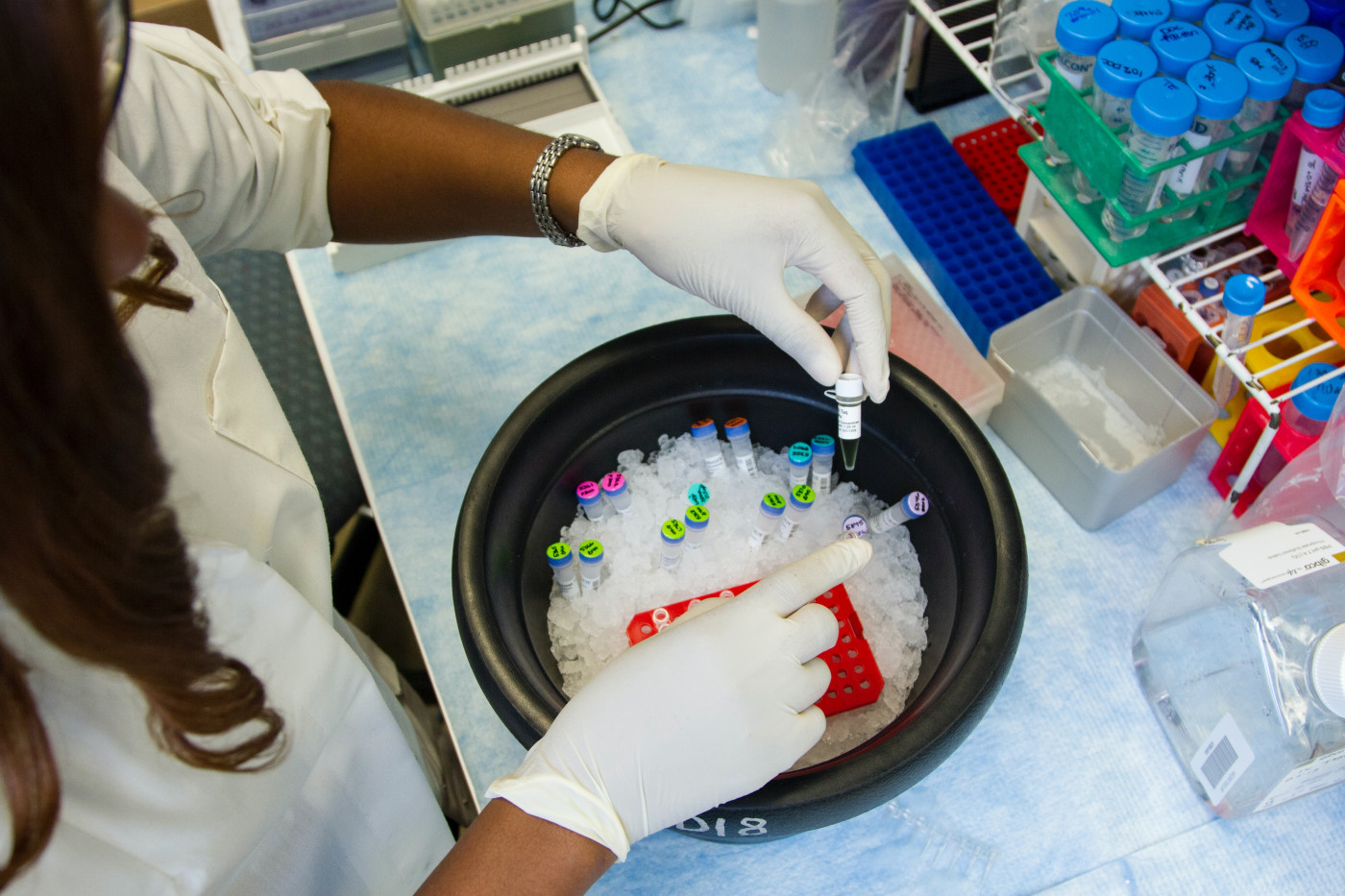Creatine Kinase Protein Levels Linked to Better Survival in ALS Patients
Written by |

als diagnostic testing
Creatine kinase, a marker of muscle damage, is significantly elevated in people with amyotrophic lateral sclerosis (ALS), and higher levels of this protein correlate with better survival rates in patients, a recent study found.
These findings suggest that monitoring creatine kinase levels is useful for predicting disease progression and survival outcomes in ALS patients.
The study, “Creatine kinase in the diagnosis and prognostic prediction of amyotrophic lateral sclerosis: a retrospective case-control study,” was published in Neural Regeneration Research.
Biomarkers are useful molecules for identifying disease in a patient, monitoring its progression, and examining how the person is responding to a particular treatment.
Creatine kinase is an enzyme that helps muscles to use energy. An elevation in this marker is associated with muscle damage and is normally used to diagnose and monitor muscle diseases, such as muscular dystrophy.
Some evidence suggests that this biomarker also is elevated in people with ALS, potentially as a means to compensate for the disease. However, the association between creatine kinase and ALS outcomes remains controversial. It also is unclear how the protein levels change over time in these patients.
To address those questions, researchers at the Sichuan University West China Hospital, in China, retrospectively examined data from 582 ALS patients treated at their hospital from May 2008 to December 2018, as well as 582 age and sex-matched healthy people (controls).
The patients were, on average, 53 years old at the time of the study, and a majority (56.9%) were men. Also, 77.1% had limb-onset ALS, meaning that the symptoms first affected their arms and legs, while the remaining participants had bulbar-onset ALS — in which the first symptoms are problems with speech or swallowing.
Blood samples were collected from all participants to measure the amount of creatine kinase in their serum.
The results showed that the serum creatine kinase levels in the ALS patients were significantly higher than among the healthy controls (169.7 vs. 78.71 units per liter). In addition, among those with ALS, the protein levels significantly correlated with longer disease duration. They did not, however, correlate with ALS severity, disease progression, or body mass index (BMI), a measure of body fat.
Looking at different subgroups, the team found that creatine kinase levels were higher in men and in patients with limb-onset ALS. Thus, these factors were taken into account to examine the relationship between creatine kinase levels and survival in ALS patients.
The analysis demonstrated that greater levels of this protein significantly predicted a lower risk of death. The effect was logarithmic, meaning that minor variations in the biomarker levels were associated with large increases in overall survival.
To address changes in this protein over time, the researchers examined data from 81 patients who underwent two blood tests, taken at least six months apart, during their disease course. Overall, creatine kinase levels dropped significantly over time, the findings showed.
“Our results suggest that serum creatine kinase levels can be used as an independent factor for predicting the prognosis of ALS patients,” the researchers wrote.
“We hypothesize that elevated CK levels might represent an upregulation of the metabolic pathway and might be an overall protective factor,” they concluded.





